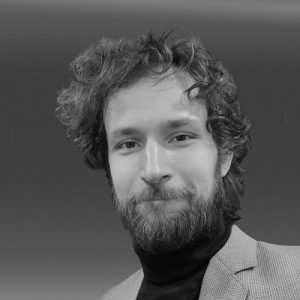WELCOME TO THE FIRST JOINT DOCTORAL SEMINAR OF THE AUTUMN!
This first joint seminar for this academic year will take place on Thursday, 21 October, and will be held virtually on Zoom starting from 15:15 (UTC/GMT+3, Helsinki. Please see link below).
Mediated by Professor Masood Masoodian, we will be starting strong with two very interesting presentations by VCD DA candidates Nicola Cerioli and Dohee Lee.
Zoom link: Click here to join the seminar!
PRESENTATIONS
‘Understanding complexity to improve the visualisation of complex datasets’
by Nicola Cerioli
In the context of information design, the term “complexity” is often used without a clear definition. This implies a lost opportunity to frame the design problem and structure the design process in a way that is conscious of complexity. My research aims at building a coherent design framework to work with complex datasets in the domain of information design and data visualization. Firstly, a definition of complexity is proposed; drawing from the work of Murray Gell-Mann, and hybridizing his definition with semiotic theory. This will open up different design possibilities on three different, although interconnected, levels: the nature of the represented data, the interface, and the mental model of the user. By adopting this new perspective, several tools and paradigms from philosophy, cognitive psychology, mathematics, and computer science will become available as support to the design process. The object of this research is to explore the different possibilities that a comprehensive understanding of complexity can bring to the information design and the data visualization design process.
Nicola Cerioli is a doctoral candidate in the Aalto Visual Communication Design group. He is interested in the visualization of complex data, to further the understanding of multifaceted phenomena. For this purpose, he studies the synergies of design methodologies, mathematical methods, and philosophical frameworks.He is collaborating as a project researcher in the FINNGEN project, exploring new methods to visualise molecular biology and health care data.
/ / / / / / / / / / / / / / / / / / / / / / / / / / / / / / / / / / / / / / / / / / / / / / / / / / / / / / / / / / / / / / / / / / / / / / /
“A systematic co-creative approach to evaluating arts and health interventions for creative well-being of older adults”
by Dohee Lee
Although older adults’ engagements in arts and design-based interventions have shown positive outcomes in terms of their health and well-being, evaluations of such interventions have rarely taken into account various elements that they consider important in contributing to their creative well-being and quality of life. We will present a narrative interview-based study we have conducted in Korea and Finland with multiple stakeholders, investigating ageing-friendly co-creative approaches to evaluation of arts and design-based interventions for health and well-being. By considering a range of factors – such as artistic and aesthetic values, ethical concerns, and evaluation measures – we propose an evaluation framework that would enable multiple stakeholders – including older adult participants, arts and health practitioners and facilitators, and arts organizations and agencies – to monitor, support and inspire each other systematically through better partnerships in resolving transdisciplinary challenges in such interventions. In particular, we focus on the potential of late-life creativity in supporting older adults in becoming more active participants in such processes, by utilising the knowledge they have accumulated through their own ageing. The aim of the framework is to take a cyclic approach to fostering collaborative co-creative relationships that seek alternative solutions, while dealing with the complexity of implementing arts and design-based interventions.
Dohee Lee is a doctoral candidate in the Aalto Visual Communication Design group. She has a MA in Material Futures with international working experiences in different communities in collective forms. She believes in the combination of design narratives and social aspects that she has been doing qualitative social design research and project coordination in various geographical, ecological, cultural, and social contexts. Her research aims at developing design strategies for social integration and social well-being of older adults through arts & design practices.

